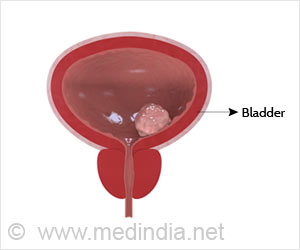Virologist treats breast cancer with oncolytic virotherapy, reducing the tumor size and boosting immune response.

An Unconventional Case Study of Neoadjuvant Oncolytic Virotherapy for Recurrent Breast Cancer
Go to source).
She doesn’t want to undergo another chemotherapy so she decided to treat herself with an unproven treatment. A case report published in Vaccines in August stated that Halassy self-administered oncolytic virotherapy (OVT) to treat her stage 3 cancer.
‘Oncolytic virotherapy uses viruses to destroy the #cancer cells and activate the immune system. #breastcancer #medindia
’





Advertisement
Oncolytic Virotherapy (OVT) to Fight Cancer
OVT is an emerging field of cancer treatment that uses viruses to destroy cancer cells and activates the immune system to fight against them. Most of the OVT clinical trials focused on patients with end-stage cancer. However, in recent years OVT trials have been conducted in patients with early-stage cancer.“Though I’m not a specialist in OVT, my expertise in cultivating and purifying viruses in the laboratory gave me the confidence to try the treatment,” says Halassy. She chose two different viruses to use one after the other - a measles virus followed by a vesicular stomatitis virus (VSV). Both viruses infect the cells causing breast tumor.
The viruses are already used in OVT clinical trials and the measles virus was trialed against metastatic breast cancer and used in childhood vaccines. The strain of VSV can show mild influenza-like symptoms. Both viruses have good safety record.
Advertisement
Personalized Cancer Treatment
For two months, Halassy’s colleague administered a regimen of treatments by her colleague using the research-grade material that Halassy had freshly prepared, which was injected directly into her tumor. Her oncologists agreed to monitor her during the self-treatment so that she would be able to switch to conventional chemotherapy if things went wrong.This approach was effective with no serious side effects and the tumor reduced and became soft. It also separated from the pectoral muscle and skin it had been invading, making it easy to remove surgically.
Advertisement
Cancer-Free After Oncolytic Virotherapy
After the tumor was removed and analyzed, it was found that lymphocytes had spread throughout the tumor, indicating that OVT had stimulated her immune system to attack both the viruses and the tumor cells. Now, Halassy has been free from breast cancer for four years.Halassy received one year of treatment after her surgery with the drug trastuzumab. Stephen Russell, an OVT specialist who runs the virotherapy biotech company Vyriad in Rochester, Minnesota, agrees that Halassy’s case suggests the viral injections worked to shrink her tumor and cause its invasive edges to recede.
However, researchers are already testing OVT to treat patients with early-stage cancer and Halassy’s self-treatment is difficult to determine as it is a “n of 1” study (a study with only one subject).
Reference:
- An Unconventional Case Study of Neoadjuvant Oncolytic Virotherapy for Recurrent Breast Cancer - (https://www.mdpi.com/2076-393X/12/9/958)
Source-Medindia












